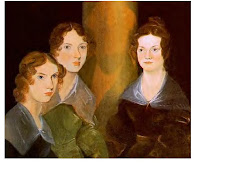What’s in a name? That which we call a rose
By any other word would smell as sweet …
– William Shakespeare, Romeo and Juliet
By any other word would smell as sweet …
– William Shakespeare, Romeo and Juliet
Lucy Vodden never met John Lennon. And she was but a child of ten, living quietly in a suburban British home, when, on the other side of the planet, Donald Johanson discovered the fossilized remains of the oldest known hominid skeleton. Yet Lucy nevertheless inspired both men indirectly, and left her mark on human history.
By pure chance, Lucy’s parents enrolled their daughter in 1967 at the same nursery school in Weybridge, England where John Lennon sent his son Julian. The two children often played together and shared a common passion for art (Lucy recalled once standing on opposite sides of a double easel with young Master Lennon; the two children splashed each other with paint). Julian drew a portrait of his friend floating in a field of stars, and presented it to his father with the explanation, “That’s Lucy in the sky with diamonds.” The name struck a chord with the Beatle, and inspired him to write his pop psychedelic masterpiece.
Lucy didn’t much like the tune. She told a reporter many years later that she felt uncomfortable with the lyrics’ drug-related connotations. (Lennon claimed the song’s vivid imagery was inspired by his readings of Lewis Carroll, and insisted that the title’s LSD acronym was entirely coincidental).
But Donald Johanson liked the song. Or at least some of the other scientists working alongside him in 1974 at an archeological dig in Hadar, Ethiopia liked it. Indeed, the workers at the site liked the tune so much, that they had it playing on a continuous loop while they were digging for fossils. When the team of researchers unearthed the fossilized remains of Australopithecus afarensis, they nicknamed the skeleton “Lucy,” in honor of the song. Many anthropologists now consider the ancient woman, whose bones lay hidden for more than three million years until Johanson found them, to be “the mother of all humanity.” She was also given the Amharic (Ethiopian) nickname “Dinkenesh,” which means “You are Beautiful,” though few westerners refer to her by the Billy Preston song title she evokes. Everyone just calls her “Lucy.”
Lucy Vodden died September 28, 2009 in London, from complications of lupus. In the last few months of her life, Julian Lennon renewed his acquaintance with her, and sent her cards and vouchers to support her gardening hobby. He never stated publically if he sent her a card decorated with splashes of children’s tempera paint.
Lucy left behind a husband, but no children. Yet she gave her name to one of the most iconic songs in popular music history, and in due course, passed it along to the “mother of mankind.” All in all, that’s not a bad way for a person to be remembered. To quote the Bard again, in his sonnet (17) wherein he compared his own verse with his muse’s possible progeny,
But were some child of yours alive that time,
You should live twice, in it and in my rhyme.


No comments:
Post a Comment